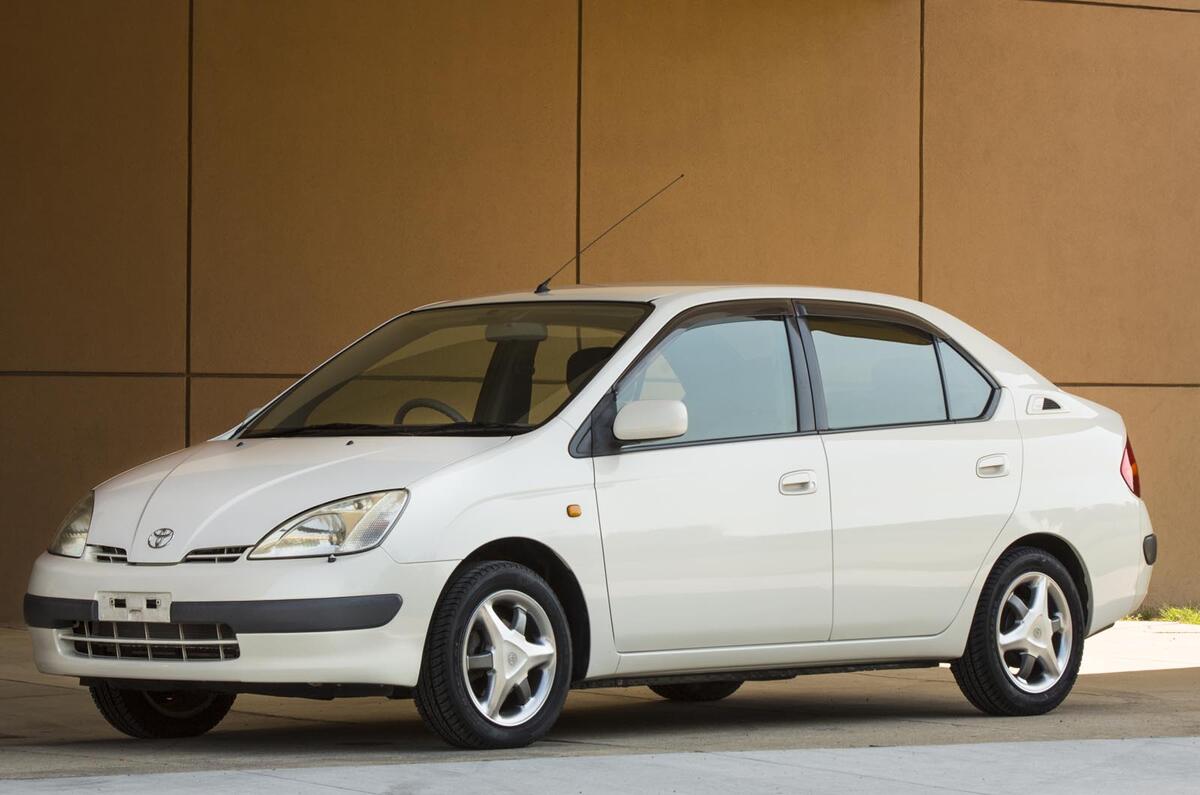Yesterday, which just happened to be Toyota’s 76th birthday, I attended the manufacturer’s Hybrid World Tour conference in Ypsilanti, Michigan.
For the event, Toyota gathered together, for the first time, its entire alternatively fuelled vehicle range from around the globe – from the little iQ EV to the fantastic TS030 Le Mans racer, which won't available any time soon at a dealer near you, unfortunately. Between Toyota and sister brand Lexus, there are 23 hybrid models on offer around the world.
The theme of the event was Toyota’s past, present and future as far as hybrid and other strands of alternative technology is concerned. To me, one of the unspoken messages was that while many other major manufacturers have either cautiously dipped their toes in the alternatively fuelled market or arrived at the hybrid party fashionably late, Toyota has been at this game for 16 years.
To misquote Kermit, it’s not easy being the first to go green. When the original Toyota Prius was unveiled to the world back in the late 1990s, it was embraced by early adopters but ignored by the majority. It was apparently dismissed by GM’s Bob Lutz as little more than a science project.
What that first Prius did do, though, was open up a demand for more fuel-efficient vehicles that didn’t even seem to exist previously. In 1997 a gallon of petrol was cheaper than a gallon of bottled water in the US, and motorists paid little mind to fuel economy and CO2 emissions.
However, it wasn’t too long before the issues of fuel prices and urban congestion started to become higher priorities for motorists, and awareness of Prius and other early hybrids began to grow.
Eco-minded Hollywood A-listers such as Cameron Diaz endorsed the Prius by rolling up to award ceremonies in one. The car also got a starring role in Larry David’s Curb Your Enthusiasm comedy show.
Another turning point came in 2006, when a thinly disguised hybrid car named the ‘Pious’ was the focus of the subversive cartoon South Park. An episode entitled ‘Smug Alert!’ lampooned the perceived superiority complex of Prius drivers, portraying them as blinkered eco-evangelists. It wasn't the first time the 'Pious' gag had been used; it had earlier appeared in the computer driving game Grand Theft Auto, which featured a car that looked remarkably similar to the Prius Mk1.






Join the debate
Add your comment
Yeah. It's a hybrid.
"I just... I just couldn't sit back and be a part of destroying the earth anymore."
Epic comparison, it may be seen as a children's cartoon but South Park really does touch on real sociopolitical issues.
Lexus seems to use Hybrid as
Lexus seems to use Hybrid as a diesel equivalent.
A shame company car lease hire fleeters don't see it this way, keeping to their TDis and 320ds.
Insight
I've now covered over 30000 miles in a Honda Insight. The gearbox doesn't bother me as I need an auto for my wife. I actually rather like the CVT apart from when I need a large acceleration to overtake. It's not that it won't accelerate - it's the noise!
I'd like to raise the issue of complexity. Yes, an electric motor adds complexity but how much? In the insight, it sits between the engine and CVT. It has one moving part. Compare that with the turbo for a fuel efficient diesel. When I was a physics teacher, I got kids to make electric motors. I never met one who could make an ICE!
Swapping between the Insight and my wife's DSG-equipped Polo is revelatory. The insight, with a smaller ICE but larger size, pulls away better, is in the right "gear" pretty much all the time and is smoother to drive. But that's not all. It just somehow seems wrong now to brake or throttle off without being able to harvest the kinetic energy. People talk about how they'd miss the noise of an ICE. Well, the Insight doesn't have a true electric only mode, but at times the valves open and the fuel shuts off and it is effectively an EV. I like the quietness. I think I'd like the discreet power delivery of a true EV but I digress.
My experiences of the hybrid have been hugely positive. I've been interested in cars for fifty years and in technology for the same length of time, ever since I saw Fireball XL5 race along its launch rail, probably. This car ticks the boxes. Maybe I'm not a true Petrolhead, but perhaps there's a new type of car lover on the horizon. A volt head?